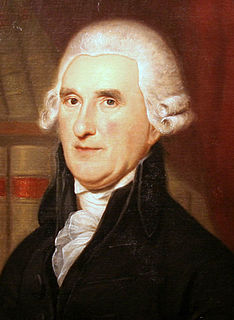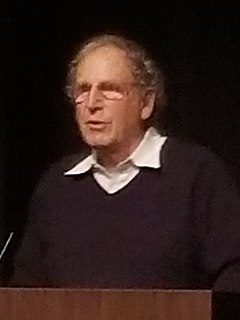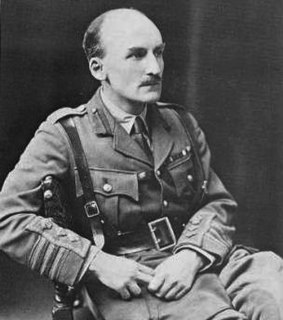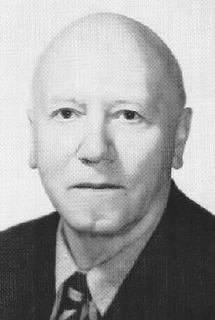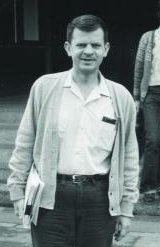Top 1200 Latter Quotes & Sayings - Page 20
Explore popular Latter quotes.
Last updated on December 4, 2024.
Reason is man's faculty for grasping the world by thought, in contradiction to intelligence, which is man's ability to manipulate the world with the help of thought. Reason is man's instrument for arriving at the truth, intelligence is man's instrument for manipulating the world more successfully; the former is essentially human, the latter belongs to the animal part of man.
Of all the names Polygamy went by (so as not to exasperate the Gentile population and even some of the wives of the members' own bosoms any more than necessary) -- such as Pluralism, Plural or Celestial Wedlock, the Principle, the Doctrine, the New Covenant and the Gospel Dispensation of the Meridian of Consummate Time -- the latter was thought to be the least like waving a red flag in front of a bull. But as it was hard to remember and did not make instant or any other kind of sense, it was not much used.
The true liberty of the press is amply secured by permitting every man to publish his opinion; but it is due to the peace and dignity of society, to inquire into the motives of such publications, and to distinguish between those which are meant for use and reformation, and with an eye solely to the public good, and those which are intended merely to delude and defame. To the latter description, it is impossible that any good government should afford protection and impunity.
The one nice thing about doing a character for a long time is, you begin to feel more comfortable, and you are thinking less and behaving more. It's always best not to be thinking a hell of a lot while you're acting, because you want it to be as spontaneous as possible, not too intellectual. Just behaving and listening to other people who you're doing scenes with. I always like the latter when it looks easy, even though it may not be.
The sadistic person is as dependent on the submissive person as the latter is on the former; neither can live without the other. The difference is only that the sadistic person commands, exploits, hurts, humiliates, and that the masochistic person is commanded, exploited, hurt, humiliated. This is a considerable difference in a realistic sense; in a deeper emotional sense, the difference is not so great as that which they both have in common: fusion without integrity .
An unchangeable colour rules over the melancholic: his dwelling is a space the colour of mourning. Nothing happens in it. No one intrudes. It is a bare stage where the inert I is assisted by the I suffering from that inertia. The latter wishes to free the former, but all efforts fail, as Theseus would have failed had he been not only himself but also the Minotaur; to kill him then, he would have had to kill himself
When I was young, I had to choose between the life of being and the life of doing. And I leapt at the latter like a trout to a fly. But each deed you do, each act, binds you to itself and to its consequences, and makes you act again and yet again. Then very seldom do you come upon a space, a time like this, between act and act, when you may stop and simply be. Or wonder who, after all, you are.
It is necessary a writing critic should understand how to write. And though every writer is not bound to show himself in the capacity of critic, every writing critic is bound to show himself capable of being a writer; for if he be apparently impotent in this latter kind, he is to be denied all title or character in the other.
We may wonder at the choice of Israel and Rome as the archetypes of the new nation, in view of the long history of suffering of the former and the decline of the latter. We may wonder that our ancestors over-looked the darker days of those earlier nations. They did not. They hoped to construct a republic on principles to sound that if we should decline in piety and public virtue we would meet the inexorable fate of nations, which are as but dust in the hands of God.
A child is not a Christian child, not a Muslim child, but a child of Christian parents or a child of Muslim parents. This latter nomenclature, by the way, would be an excellent piece of consciousness-raising for the children themselves. A child who is told she is a 'child of Muslim parents' will immediately realize that religion is something for her to choose -or reject- when she becomes old enough to do so.
Let us contemplate our forefathers, and posterity, and resolve to maintain the rights bequeathed to us from the former, for the sake of the latter. The necessity of the times, more than ever, calls for our utmost circumspection, deliberation, fortitude and perseverance. Let us remember that "if we suffer tamely a lawless attack upon our liberty, we encourage it, and involve others in our doom," it is a very serious consideration that millions yet unborn may be the miserable sharers of the event.
My philological studies have satisfied me that a gifted person ought to learn English (barring spelling and pronouncing) in thirty hours, French in thirty days, and German in thirty years. It seems manifest, then, that the latter tongue ought to be trimmed down and repaired. If it is to remain as it is, it ought to be gently and reverently set aside among the dead languages, for only the dead have time to learn it.
Too much of what led up to the crisis in the old bubble days—the conspicuous consumption, the latter-day Gatsbyism—was fueled by a need to fill a huge emotional and psychological void left by the absence of meaningful work. When people cease to find meaning in work, when work is boring, alienating, and dehumanizing, the only option becomes the urge to consume—to buy happiness off the shelf, a phenomenon we now know cannot suffice in the long term.
If a hundred or a thousand people, all of the same
age, of the same constitution and habits, were suddenly
seized by the same illness, and one half of them were to
place themselves under the care of doctors, such as they
are in our time, whilst the other half entrusted themselves
to Nature and to their own discretion, I have not the
slightest doubt that there would be more cases of death
amongst the former, and more cases of recovery among
the latter.
Complete knowledge of the nature of an analytic function must also include insight into its behavior for imaginary values of the arguments. Often the latter is indispensable even for a proper appreciation of the behavior of the function for real arguments. It is therefore essential that the original determination of the function concept be broadened to a domain of magnitudes which includes both the real and the imaginary quantities, on an equal footing, under the single designation complex numbers.
There is one great fact, characteristic of this our nineteenth century, a fact which no party dares deny. On the one hand, there have started into life industrial and scientific forces which no epoch of former human history had ever suspected. On the other hand, there exist symptoms of decay, far surpassing the horrors recorded of the latter times of the Roman empire. In our days everything seems pregnant with its contrary.
I am convinced that those societies (such as the Native American peoples) which live without government enjoy in their general mass an infinitely greater degree of happiness than those who live under the European governments. Among the former, public opinion is in the place of law, & restrains morals as powerfully as laws ever did anywhere. Among the latter, under pretence of governing they have divided their nations into two classes, wolves & sheep. I do not exaggerate.
Upon this subject, the habits of our whole species fall into three great classes--useful labour, useless labour and idleness. Of these the first only is meritorious; and to it all the products of labour rightfully belong; but the two latter, while they exist, are heavy pensioners upon the first, robbing it of a large portion of it's just rights. The only remedy for this is to, as far as possible, drive useless labour and idleness out of existence.
At first he who invented any art that went beyond the common perceptions of man was naturally admired by men, not only because there was something useful in the inventions, but because he was thought wise and superior to the rest. But as more arts were invented, and some were directed to the necessities of life, others to its recreation, the inventors of the latter were always regarded as wiser than the inventors of the former, because their branches of knowledge did not aim at utility.
Hardly a pure science, history is closer to animal husbandry than it is to mathematics in that it involves selective breeding. The principal difference between the husbandryman and the historian is that the former breeds sheep or cows or such and the latter breeds (assumed) facts. The husbandryman uses his skills to enrich the future, the historian uses his to enrich the past. Both are usually up to their ankles in bullshit.
The sentiment that is very inappropriately named equality is fresh, strong, alert, precisely because it is not, in fact, a sentiment of equality and is not related to any abstraction, as a few naive "intellectuals" still believe; but because it is related to the direct interests of individuals who are bent on escaping certain inequalities not in their favour, and setting up new inequalities that will be in their favour, this latter being their chief concern.
It is characteristic of the barbarian ... to insist upon seeing a thing "as it is." The desire testifies that he has nothing in himself with which to spiritualize it; the relation is one of thing to thing without the intercession of the imagination. Impatient of the veiling with which the man of higher type gives the world imaginative meaning, the barbarian and the Philistine, who is the barbarian living amid culture, demands the access of immediacy. Where the former wishes representation, the latter insists upon starkness of materiality, suspecting rightly that forms will mean restraint.
There are three means of believing--by inspiration, by reason, and by custom. Christianity, which is the only rational institution, does yet admit none for its sons who do not believe by inspiration. Nor does it injure reason or custom, or debar them of their proper force; on the contrary, it directs us to open our minds by the proofs of the former, and to confirm our minds by the authority of the latter.
In film, there are two ways of including human beings. One is depicting human beings. Another is to create a film form which, in itself, has all the qualities of being human: tenderness, observation, fear, relaxation, the sense of stepping into the world and pulling back, expansion, contraction, changing, softening, tenderness of heart. The first is a form of theater and the latter is a form of poetry.
Although I knew enough Freud to believe that the sex urge was an important mainspring of life, it still seemed to me that any conscious manifestation of sex was necessarily ludicrous. Defecation and copulation were two activities which made a human being totally ridiculous. At least the former could be conducted in private, but the latter by definition demanded a partner. I discovered, though, that whenever I ventured this opinion, people took it as a joke.
Nature in causing reason and the passions to be born at one and the same time apparently wished by the latter gift to distract man from the evil she had done him by the former, and by only permitting him to live for a few years after the loss of his passions seems to show her pity by early deliverance from a life that reduces him to reason as his sole resource.
Place three individuals in a situation wherein the interest of each depends on the voice of the others, and give to two of them an interest opposed to the rights of the third. Will the latter be secure? The prudence of every man would shun the danger. The rules & forms of justice suppose & guard against it. Will two thousand in a like situation be less likely to encroach on the rights of one thousand?
You see, when a nation threatens another nation the people of the latter forget their factionalism, their local antagonisms, their political differences, their suspicions of each other, their religious hostilities, and band together as one unit. Leaders know that, and that is why so many of them whip up wars during periods of national crisis, or when the people become discontented and angry. This is the explanation of all wars, all racial and religious hatreds, all massacres, and all attempts at genocide.
The knowledge of the individual citizen is of less value than the knowledge of science. The former is the opinion of individuals. It is merely subjective and is excluded from policies. The latter is objective - defined by science and promulgated by expert spokesmen. This objective knowledge is viewed as a commodity which can be refined... and fed into a process, now called decision-making. This new mythology of governance by the manipulation of knowledge-stock inevitably erodes reliance on government by people.
Whenever I get distracted or bored, my eyes wander over to that chalkboard and I read the words. Some of them grow on me, and others annoy me. I attack the latter with eraser and chalk, and keep nudging at them until I like the way they look and sound. Others never make the cut at all and simply get erased. Perhaps one day I will sell these on eBay to RPG players who need names for characters or alien races.
Which is the healthier kind of literary diversity: an un-gate-kept self-published book world, run substantially through Amazon? Or our current book world, which is part-gate-kept, part-not, with many different publishers and retailers and platforms? I'm not smart enough to figure it out, but if I had to guess I'd guess the latter.
It's not that difficult to play well and win titles in a team like Barcelona, but it's in the national side where you see a player's true class. That was the case with figures like Pele, Diego Maradona and Zinedine Zidane. With Spain, Iniesta has shown that he is among the best players of all time and that's why I rate him higher than Messi or Ronaldo. Even though the latter two have incredible scoring records for their clubs, they still haven't won anything with Argentina or Portugal respectively.
Philosophers have long conceded, however, that every man has two educators: 'that which is given to him, and the other that which he gives himself. Of the two kinds the latter is by far the more desirable. Indeed all that is most worthy in man he must work out and conquer for himself. It is that which constitutes our real and best nourishment. What we are merely taught seldom nourishes the mind like that which we teach ourselves.
As Latter-day Saints, we need not look like the world. We need not entertain like the world. Our personal habits should be different. Our recreation should be different. Our concern for family will be different. As we establish this distinctiveness firmly in our life's pattern, the blessings of heaven await to assist us.
Discipline is no longer literal obedience but intelligent obedience, for discipline aims at obedience coupled with activity of will. Once discipline weakens and vanishes, as it does towards the latter stages of the fire fight, and the crowd instinct possesses the soldier, then will he, if training has formed those necessary mental reflexes, surrender himself to the will of his leader; this is where leadership supplants discipline without destroying it.
In times past...it was my habit to talk glibly of the right of man to land. It was a bad habit, and I long ago sloughed it off. Man's only right to land is his might over it. If his neighbor is mightier than he and takes the land from him, then the land is his neighbor's, until the latter is dispossessed by one mightier still.
Most codes extend their definitions of treason to acts not really against one's country. They do not distinguish between acts against the government, and acts against the oppressions of the government. The latter are virtues, yet have furnished more victims to the executioner than the former. Real treasons are rare; oppressions frequent. The unsuccessful strugglers against tyranny have been the chief martyrs of treason laws in all countries.
I shall no doubt be blamed by certain scientists, and, I am afraid, by some philosophers, for having taken serious account of the alleged facts which are investigated by Psychical Researchers. I am wholly impenitent about this. The scientists in question seem to me to confuse the Author of Nature with the Editor of Nature; or at any rate to suppose that there can be no productions of the former which would not be accepted for publication by the latter. And I see no reason to believe this.
These self-appointed deacons in the Church of Latter-Day American Literature seem to regard generosity (of words) with suspicion, texture with dislike, and any broad literary stroke with outright hate. The result is a strange and arid literary climate where a meaningless little fingernail paring like Nicholson Baker's Vox becomes an object of fascinated debate and dissection, and a truly ambitious American novel like Matthew's Heart of the Country is all but ignored.
How then to enforce peace? Not by reason, certainly, nor by education. If a man could not look at the fact of peace and the fact of war and choose the former in preference to the latter, what additional argument could persuade him? What could be more eloquent as a condemnation of war than war itself? What tremendous feat of dialectic could carry with it a tenth the power of a single gutted ship with its ghastly cargo?
In order to understand the phenomena in a certain plasma region, it is necessary to map not only the magnetic but also the electric field and the electric currents. Space is filled with a network of currents which transfer energy and momentum over large or very large distances. The currents often pinch to filamentary or surface currents. The latter are likely to give space, as also interstellar and intergalactic space, a cellular structure.
We declare our belief in Jesus Christ and accept Him as our Savior. He will bless us and guide us in all of our efforts. As we labor here in mortality, He will strengthen us and bring us peace in time of trials. Members of The Church of Jesus Christ of Latter-day Saints walk by faith in Him whose Church it is.
... over two hundred women, apparently at their own request, were sealed as wives to Joseph Smith after his death in special temple ceremonies. Moreover, a great many distinguished women in history, including several Catholic saints, were also sealed to Joseph Smith in Utah. I saw these astonishing lists in the Latter-day Saint Genealogical Archives in Salt Lake City in 1944.
When I was in graduate school in Princeton, I was told to take three courses. One of them to work on really hard, another to work on moderately hard, and the third one just to absorb. In my case, I never showed up to the latter class, taught by Robert Gunning, on Several Complex Variables. Several Complex Variables (Cn) was starting to get vary fashionable then, but I decided to specialize in n=1/2.
Every home is a house of learning either for good or otherwise. Family members may learn to be obedient, honest, industrious, self-reliant, and faithful in living gospel principles, or they may learn something else. Learning the gospel in the homes of Church members should be centered on the scriptures and on the words of the latter-day prophets. The Lord has commanded parents to teach their children.
Suppose that you could mark the molecules in a glass of water; then pour the contents of the glass into the ocean and stir the latter throughly so as to distribute the marked molecules uniformly throughout the seven seas; if then you took a glass of water anywhere out of the ocean, you would find in it about a hundred of your marked molecules.
We really have no choice but to pray and encourage a return to an America steeped in Judeo-Christian values. It is either that or taking our chances in a society with no values at all. For all Americans the former carries certain risks, but the latter spells certain doom. For now, we should not be deflected by theological debate from the life-saving tasks awaiting us. There is work to be done. We must ensure that America will continue to be part of God's plan for the world.
The first step to walking in righteousness is simply to try. We must try to believe. Try to learn of God: read the scriptures; study the words of His latter-day prophets; choose to listen to the Father, and do the things He asks of us. Try and keep on trying until that which seems difficult becomes possible-and that which seems only possible becomes habit and a real part of you.
When one existentially awakens from within, the relation of birth-and-death is not seen as a sequential change from the former to the latter. Rather, living as it is, is no more than dying, and at the same time there is no living separate from dying. This means that life itself is death and death itself is life. That is, we do not shift sequentially from birth to death, but undergo living-dying in each and every moment.
No man can expect to find a friend without faults; nor can he propose himself to be so to another. Without reciprocal mildness and temperance there can be no continuance of friendship. Every man will have something to do for his friend, and something to bear with in him. The sober man only can do the first; and for the latter, patience is requisite. It is better for a man to depend on himself, than to be annoyed with either a madman or a fool.
Every once in awhile, find a spot of shade, sit down on the grass or dirt, and ask yourself this question: “Do I respect myself?” A corollary to this question: “Do I respect the work I’m doing?” If the answer to the latter question is NO, then the answer to the former question will probably be NO too. If this is the case, wait a few weeks, then ask yourself the same two questions. If the answers are still NO, quit.
The whole analogy of natural operations furnishes so complete and crushing an argument against the intervention of any but what are termed secondary causes, in the production of all the phenomena of the universe; that, in view of the intimate relations between Man and the rest of the living world; and between the forces exerted by the latter and all other forces, I can see no excuse for doubting that all are co-ordinated terms of Nature's great progression, from the formless to the formed from the inorganic to the organic from blind force to conscious intellect and will.
While complying can be an effective strategy for physical survival, it's a lousy one for personal fulfillment. Living a satisfying life requires more than simply meeting the demands of those in control. Yet in our offices and our classrooms we have way too much compliance and way too little engagement. The former might get you through the day, but only the latter will get you through the night.
The prospect of an early death sits differently upon each person. In some it gifts maturity far outweighing their age and experience: calm acceptance blossoms into a beautiful nature and soft countenance. In others, however, it leads to the formation of a tiny ice flint in their heart. Ice that, though at times concealed, never properly melts. Rose, though she would have liked to be one of the former, knew herself deep down to be one of the latter.
A testimony is a most precious possession because it is not acquired by logic or reason alone, it cannot be purchased with earthly possessions, and it cannot be given as a present or inherited from our ancestors. We cannot depend on the testimonies of other people. We need to know for ourselves. President Gordon B. Hinckley said, ‘Every Latter-day Saint has the responsibility to know for himself or herself with a certainty beyond doubt that Jesus is the resurrected, living Son of the living God.
The desire of excellence is the necessary attribute of those who excel. We work little for a thing unless we wish for it. But we cannot of ourselves estimate the degree of our success in what we strive for; that task is left to others. With the desire for excellence comes, therefore, the desire for approbation. And this distinguishes intellectual excellence from moral excellence; for the latter has no necessity of human tribunal; it is more inclined to shrink from the public than to invite the public to be its judge.
I was raised a Catholic as a boy and went to a Catholic boys' high school, a private school, and kind of drifted away, candidly, in my latter teen years. I consider myself deeply spiritual but not in an institutional, religious kind of a way. In Catholicism, we're surrounded by these images of martyrdom and doing penance and doing some suffering to achieve what you're trying to achieve. And I certainly embedded that in my psyche and I have lived that very effectively.
Hope, and fear. Twin forces that tugged at us first in one direction and then in another, and which was the stronger no one could say. Of the latter we never spoke, but it was always with us. Fear, constant companion of the peasant. Hunger, ever at hand to jog his elbow should he relax. Despair, ready to engulf him should he falter. Fear; fear of the dark future; fear of the sharpness of hunger; fear of the blackness of death.
The correct relationship between the higher and lower classes, the appropriate mutual interaction between the two is, as such, the true underlying support on which the improvement of the human species rests. The higher classes constitute the mind of the single large whole of humanity; the lower classes constitute its limbs; the former are the thinking and designing [ Entwerfende ] part, the latter the executive part.
Given one has before oneself a strong, healthy, youth rich in spirited blood and a powerless, weak, cachectic old man scarcely capable of breathing. If now the physician wishes to practise the rejuvenating art on the latter, he should make silver tubes which fit into each other: open then the artery of the healthy person and introduce one of the tubes into it and fasten it into the artery; thereupon he opens also the artery of the ill person.


